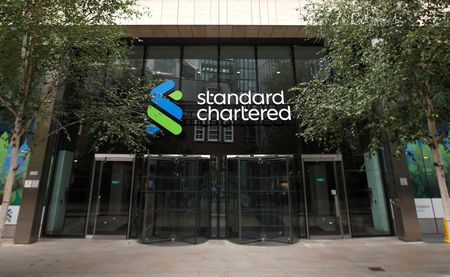By Ross Kerber
BOSTON (Reuters) -Edward C. “Ned” Johnson 3d, an American billionaire investor and philanthropist who as chairman of Fidelity Investments propelled the family business to a dominant place in finance for decades, died on Wednesday at age 91, the company said.
Johnson “died peacefully on March 23, 2022, surrounded by his loving family,” Fidelity said in a press release. A representative added Johnson died of natural causes.
Johnson led the Boston-based company founded by his father for nearly 40 years before passing the chairman’s title to his daughter Abigail Johnson in 2016.
On his watch Fidelity transformed personal investing through the use of new technologies like telephone services and by promoting famous fund managers like Peter Lynch, the former manager of Magellan Fund.
In a LinkedIN post Abigail Johnson wrote that Johnson died at home in Florida and cited her father’s love for his family, the stock market and sailing. “He could be counted on to have the contrarian view on just about anything,” she wrote.
In later years, Fidelity’s actively-managed funds lost ground to cheaper passive products from rivals like BlackRock Inc. Fidelity still ran $4.5 trillion across all its managed investment products as of its latest shareholder letter for 2021, and remained one of Boston’s most important companies.
Wary of public attention, Ned Johnson rarely gave speeches and shunned media appearances even as his company came to wield huge influence as a major shareholder in many top U.S. corporations.
“We’re just a simple family business,” he said at a luncheon in Boston in 2007, dismissing yet another interview request.
Yet, he gave away millions of dollars to charities both in his native Massachusetts and worldwide. Friends described Johnson as demanding of others and of himself.
Once, in New York, Johnson made a point of holding an umbrella over guests as he walked them in the pouring rain to a Fidelity reception, recalled Charles Dornbush, a Fidelity executive in the 1990s.
“Here is a guy who is one of the wealthiest people in the world, but there is nobody he looks down at,” Dornbush said.
A tennis enthusiast and noted collector of antiques and art, Johnson filled Fidelity’s stately Boston buildings with Asian prints and sculptures and preached internally the Japanese management philosophy of Kaizen, or continuous improvement.
Edward Crosby “Ned” Johnson 3d was born on June 29, 1930 and graduated from Harvard University in 1954. Three years later, he joined as a research analyst at Fidelity, created in 1946 by his father, trust lawyer Edward Johnson II.
The younger Johnson soon made his mark picking stocks and by 1965 was put in charge of Fidelity’s then-flagship Magellan fund where his returns beat more famous managers who followed.
He took over Fidelity in 1972, coming up with the idea of letting investors write checks on money market accounts.
Coupled with heavy investments in telephone call centers and online trading services, the strategy positioned Fidelity as the dominant money manager during the stock market booms of the 1980s and 1990s.
Fidelity’s widely-sold mutual funds like Contrafund and retirement products would later become some of the most popular vehicles for individual investors.
Johnson also had a whimsical side. Once he teased a group of employees after discovering them flying a toy blimp in a Fidelity corridor after hours. “He was a very down to earth guy,” said one of those caught, Jackson Loomis.
Despite its scale Johnson kept Fidelity operations under the radar, making hardly any public appearances and creating a board dominated by insiders plus two of his three children, Abigail and son Edward C. Johnson IV.
Fidelity’s private structure gave Johnson the freedom to replace top executives at will and to make unorthodox investments like in the low-margin payroll business, which helped Fidelity gain company retirement accounts.
But the company also lost ground to rivals BlackRock and Vanguard Group Inc that found more success with low-cost index funds and exchange-traded funds.
Johnson’s tight grip also meant matters like a gifts scandal involving Fidelity traders in 2003 and 2004 raised questions for Fidelity’s leadership.
Under private ownership Fidelity emerged stronger than most rivals from the financial crisis that began in 2007. In the company’s annual report at the start of 2009, Johnson unloaded on fellow financial executives whose conduct, he wrote, was “laced with toxic investment waste and the casual use of other people’s money.”
Fidelity’s success gave it much influence in its hometown and at a banquet in Ned Johnson’s honor by the Greater Boston Chamber of Commerce in 2012 speakers lined up to praise his work ethic and creative approach to business.
Lynch, the storied later manager of Magellan, put his boss on the same level as Apple Inc creator Steve Jobs. Johnson, Lynch said, “Did everything possible to make Steve Jobs look like he’s asleep.”
(Reporting by Ross Kerber; additional reporting by Svea HerbstEditing by Chris Reese and Diane Craft)










